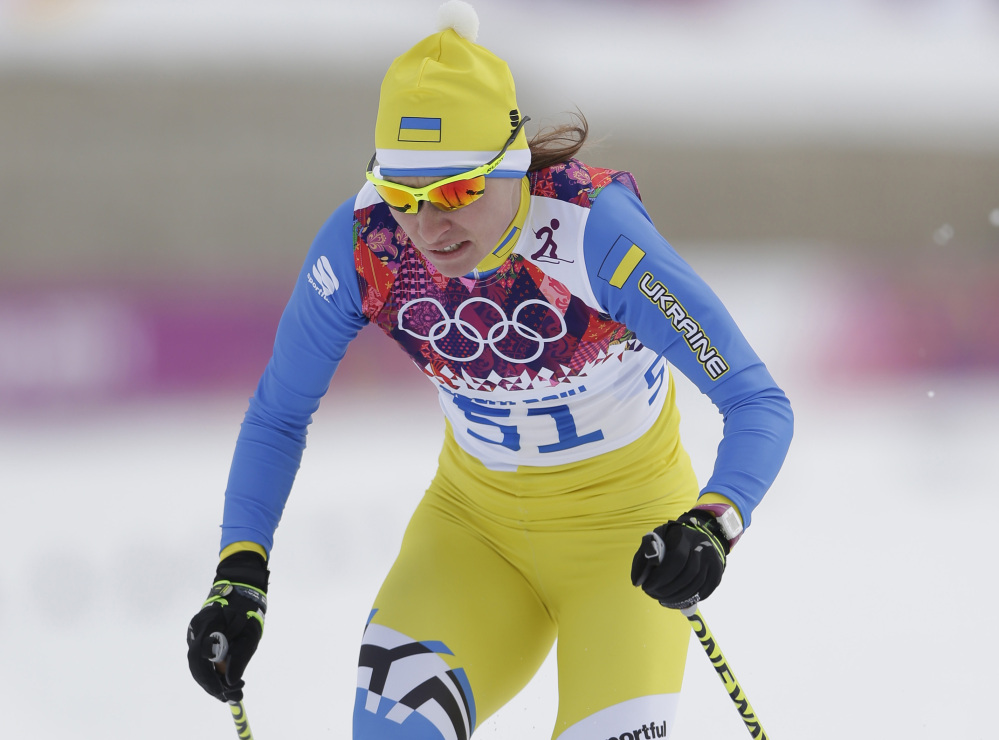SOCHI, Russia – A Latvian hockey player and a Ukrainian cross-country skier failed drug tests at the Sochi Olympics, bringing to four the number of doping cases at the games.
The International Olympic Committee said early Sunday that Vitalijs Pavlovs and Marina Lisogor were both expelled from the games.
Pavlovs tested positive for the stimulant methylhexanamine following Latvia’s loss to Canada in the quarterfinals on Thursday. The 30-year-old Lisogor tested positive for trimetazidine on Tuesday after the women’s team sprint.
The latest positive tests follow those of German biathlete Evi Sachenbacher-Stehle and Italian bobsledder William Frullani.
All four cases involve stimulants that can be found in food supplements. They are all classified as a “specified stimulant” on the World Anti-Doping Agency’s prohibited list. Specified substances are considered more susceptible to inadvertent use and can carry reduced penalties.
Pavlovs was tested after Latvia’s 2-1 loss to the Canadians in the men’s hockey tournament. Latvia finished in eighth place.
Pavlovs said he had been taking food supplements on the recommendation of the doctor of his Latvian club team, Dynamo Riga.
“The disciplinary commission unanimously concluded that the athlete had been negligent and had therefore committed an anti-doping rule violation,” the IOC said in a statement.
The Latvian’s doping violation was announced early on the final day of the Sochi Games.
Lisogor competed in two cross-country events in Sochi, finishing far out of the medals. She said she had been taking medication for a thyroid condition but “forgot to declare” the drug on her doping form.
Lisogor admitted she was at fault and did not request the backup “B” sample to be tested.
“The disciplinary commission unanimously concluded that the athlete had, at the very least, been negligent,” the IOC said.
The IOC is conducting 2,453 drug tests in Sochi, a record for the Winter Games. The Olympic body also stores doping samples for 10 years to allow for retesting when new methods become available.
There was only one positive test at the previous Winter Olympics four years ago in Vancouver.
IOC President Thomas Bach said the new cases showed that the zero-tolerance policy is working.
“For me it was never a question of the numbers and how many,” Bach said in an interview with The Associated Press. “I think it shows we are on the right track.”
Sachenbacher-Stehle, a former two-time Olympic gold medalist, tested positive for methylhexanamine in both samples. The German Olympic Committee said she was being sent home. She blamed a nutritional supplement and said she had never knowingly taken performance-enhancing drugs.
“I am going through the worst nightmare that you can imagine because I am unable to explain at all how there could be a positive test,” she said Friday.
Frullani was ejected from the games after testing positive for dimetylpentylamine. Frullani, who had not competed yet, asked for a backup test that confirmed the result.
The Italian Olympic Committee told The Associated Press it believed Frullani, a former decathlete, bought the stimulant on the Internet from the United States since it is not available in Italy.
AP Sports Writers Stephen Wilson and Fred Lief contributed to this report.
Send questions/comments to the editors.


